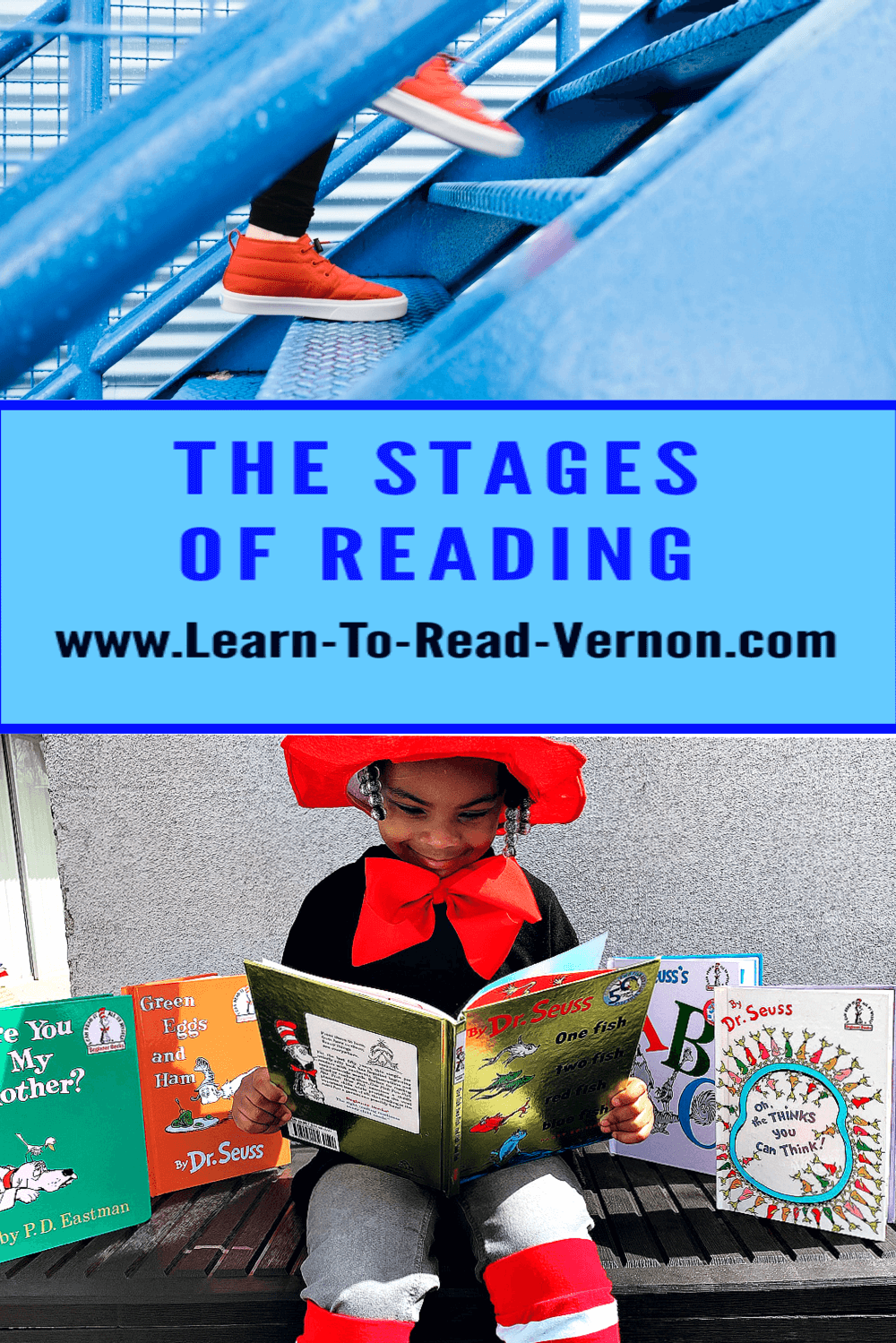| site search by freefind | advanced |
- Home
- Learn To Read
- Five Stages of Reading
The Five Stages Of Reading
by Carolyn Caron and Cliff Ponder, Reading Instruction Specialists
Note: If you purchase anything from links on this site, I may make a commission.
Join our Facebook page.
The five stages of reading are essential for understanding written English. Each one must be mastered by the student, but they are not difficult if taught correctly.
The Five Stages Of Reading:
1. Word Attack Skills
Words must be decoded in order to understand their meanings. Remember, letters are coded symbols. Reading involves learning the code and applying it to letters as they are grouped together to form words. Sometimes the code is quite simple, as with sounds of single letters in short words such as “bit” or “jam.” At other times the code is complex, as in such words as “augmentation,” in which the A-U makes its own unique sound and the T-I copies the sound of S-H. Or consider words like “classicism,” where the first C sounds like the letter K, and the second C copies the sound of S.
The rules governing the sound a particular letter makes in a given place are for the most part relatively simple, but are largely neglected in major reading instruction methods. For example, if only one sound of the letter A is taught, as in “at,” students may flounder when they see words such as “wad,” “war,” “ball,” or “foam.” And they need to know why that silent A is in “foam.” They also need to know all nine sounds of A.
Because more than 50 crucial elements are missing from the typical reading instruction method, much of the English-speaking world is locked in a plague of semi-literacy, or in the worst cases, illiteracy.
A small minority will learn to read regardless of the quality of instruction, but many bright students will never learn to read well because that crucial first step was omitted from their primary reading instruction at school.
The Five Stages Of Reading:
2. Comprehension
The entire brain must be involved in learning to read. Specialized areas of the brain control different functions. Only after the decoding process is fully operative can the brain be freed to higher level comprehension skills. When the initial reading instruction method includes all the skills needed for decoding words, meaning and content automatically occur in a natural, orderly and efficient process.
The Five Stages Of Reading:
3. Evaluation
Evaluation involves a careful assessment of that which has been read and comprehended. It involves a different area within the brain than that required for decoding and comprehension. For example, the statement, “Red is green,” will be evaluated for accuracy and consequently discredited if the individual words have been read and understood.
The Five Stages Of Reading:
4. Application and Retention
Once the information has been read and properly evaluated, it can be applied in a meaningful way by the reader. He or she can then decide what to accept or reject and how to apply it to his or her individual needs. Some of the information may be deemed to be irrelevant or inappropriate, and may be discarded.
The Five Stages Of Reading:
5. Fluency
When the first four steps are functioning comfortably, the reader usually finds that reading is a pleasant and effective way to learn and experience factors that would be inaccessible without the knowledge gleaned from reading.
If someone you know struggles with reading, examine the method used to teach them. It should include all the sounds and rules in an orderly, progressive sequence. When it does, reading becomes a positive, rewarding experience.
Comments by Reading Instruction Specialist
Glenn Davis On The Stages Of Reading

As you can see, all five stages of reading are necessary to be a good reader. They can be mastered by any age group for material at their level. Once the five stages of reading are mastered, then expanding vocabulary and understanding of reading material advances naturally as the reader grows and matures. The key is having all five states of reading operating.
In many ways, the five stages of reading are built like a skyscraper. To be successful, each stage depends on the stage before it. If the stage before it is missing or incomplete, then we have a precarious building. I would not want to be going to the top floor in it!
Sadly, most reading instruction methods, even those which include some phonics, fail at the very first stage of reading. Their students are never taught all the skills necessary to master decoding words. Then the brain is distracted during the other stages of reading, just trying to understand what the word is. The student suffers at all the other stages. Usually, students who have conquered word attack skills naturally develop in the other four stages of reading. Students, who appear to have mastered word attack skills but still struggle with the other stages, may be reading in the wrong way, a way which forces the brain to work harder than necessary on stage one.
Of course, you know what I am going to say next. Academic Associates ensures that every student masters word attack skills and then goes on to each of the other steps as required.
Sign up for our complete reading program now.



